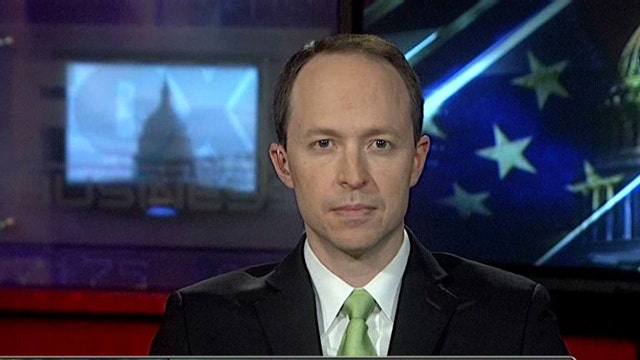Defense Cuts and Their Impact on GDP
Defense spending took a nose dive in the fourth quarter, plunging 22%, after rising 13% in the third quarter.
According to the Bureau of Economic Analysis, the Department of Defense spent less on almost everything except military pay. This slowdown in defense spending may help explain why the U.S. economy for the first time since 2009 contracted by 0.1%. It’s estimated by the Office of Management and Budget that defense spending as a percentage of GDP was 4.1% in 2012.
And don’t expect the Pentagon to start spending anytime soon. In a memo, Deputy U.S. Defense Secretary Ashton Carter instructed military services to begin making spending cuts now in preparation for the sequestration, a series of automatic across-the-board spending cuts set to hit in March. The Department of Defense could be facing cuts of nearly $500 billion over a decade.
Todd Harrison, defense analyst for the Center of Strategic and Budgetary Assessments, says this quarter will be worse than the last quarter for defense cuts, and its effect on GDP.
“We’re going to see continued draw down because of the withdrawal from Afghanistan and the Dept of Defense has come out with guidance -- they have already ordered all the services to start slowing down spending…we’re going to see another hit in this quarter.”
Harrison says the companies that will be hit the most will be the small businesses that aren’t as diversified, like the services sector that provide food and system engineering services to the military. As for the big guys, “Boeing and the other major contractors are in a better position; they have a strong backlog of products that the government has already obligated funding to buy.”
However, he says if sequestration goes into affect every product, project, and activity within the department has to be cut by the same percentage. For example, the Department of Defense is currently planning to buy 29 of Lockheed Martin’s F-35 fighter jets -- that will be cut back to about 26 or fewer for the current fiscal year.
Congress has until March to avoid sequestration but there is currently no deal in sight. Harrison says the best plan would be one that turns off the automatic across-the-board cuts and allows the Pentagon to make smarter cuts based on strategy or one that implements cuts gradually lessening the shock on the U.S. economy.




















